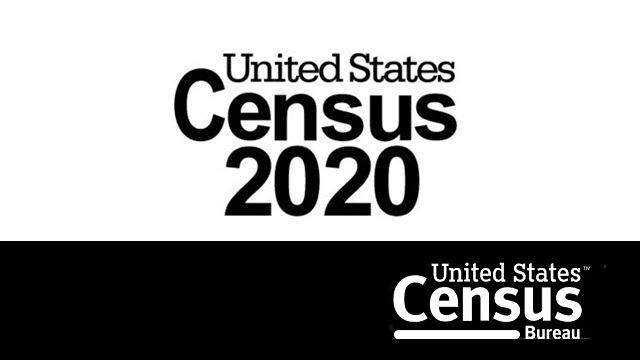Election Theft and U.S. Census Bureau: Over-Counted Democrat States, Under-Counted Republican States

Another massive election fraud story censored and scrubbed. The New York Times reported that Census Bureau admitted it overcounted the population in Democrat-dominated states Colorado, Delaware, Hawaii, Massachusetts, Minnesota, New York, and Rhode Island. The bureau said it undercounted the population in Republican-dominated Arkansas, Florida, Mississippi, Tennessee, and Texas (more here).
The conclusions come from a survey of 161,000 housing units conducted after the census was completed, a standard procedure following each once-in-a-decade head count of the U.S. population.
The results were markedly worse than in the 2010 census, in which none of the states had a statistically significant overcount or undercount, the agency found.
Congress needs to get to the bottom of what happened. It must use its oversight authority to investigate the Census Bureau, and how and why these errors happened. But it won’t. The testicular challenged GOP is led by the spineless, the gutless and the ball-less.
“If a politician from Florida decides to run for president in 2024, his (or her) home state will be short two votes in the Electoral College, and when the new session of the U.S. House of Representatives convenes in January 2023, Florida will be missing two congressional seats to which it is entitled,” Hans A. von Spakovsky, senior legal Fellow at the Heritage Foundation and a former Department of Justice lawyer and FEC commissioner, noted in a Sept. 3 analysis.
The Census Bureau admitted it undercounted the Sunshine State’s population by 750,000.
To put that in perspective, the 2010 Census showed a statistically insignificant error rate of just 0.01%. That means the Census Bureau only missed counting 36,000 Americans — in the entire country.
And when you get the shaft from the Census Bureau, you get it for 10 years.
Larry Ward, president of Political Media, Inc. (PMI), noted in a Facebook post: “More election theft. A direct result of the deep state Census Bureau delaying delivering Census results until Biden’s illegitimate inauguration. 10 years of bullshit til it is repaired.”
Texas was also robbed of another congressional seat by the Census Bureau’s undercounting operatives.
Meanwhile, Minnesota and Rhode Island got to keep congressional seats they don’t deserve.
Minnesota would have lost a congressional seat if it had 26 fewer residents. The Census Bureau just happened to find and count 216,971 residents of Minnesota who aren’t residents of Minnesota.
Rhode Island would have lost a congressional seat if the Census Bureau had counted 19,000 fewer residents. The Democrat bastion was overcounted by more than 55,000 individuals.
See how that works?
“There is no remedy in the federal statutes governing the census and apportionment to correct this problem. The scope of this problem was unusually high, and the Census Bureau has not offered any explanation as to how this happened,” von Spakovsky wrote.
The Federal Gov’s Bungled Census Is Bad News For Red States. Here’s Why
By: Hans von Spakovsky, Daily Caller, September 3, 2022:
If a politician from Florida decides to run for president in 2024, his (or her) home state will be short two votes in the Electoral College, and when the new session of the U.S. House of Representatives convenes in January 2023, Florida will be missing two congressional seats to which it is entitled.
Why? Because according to a post-2020 census survey, the U.S. Census Bureau significantly undercounted the population of Florida, as well as Arkansas, Illinois, Mississippi, Tennessee and Texas. At the same time, it overcounted the population of eight states, all but one of which is a blue state.
The 2020 errors were discovered when the Census Bureau interviewed a large number of households across the country and compared the answers it got to the original census responses in 2020. In addition to undercounting six states, the survey showed that the Bureau overcounted the population of Delaware, Hawaii, Massachusetts, Minnesota, New York, Ohio, Rhode Island and Utah.
Funny coincidence – the Census made its largest overcount percentage error in President Joe Biden’s tiny home state of Delaware, which was overcounted by 5.45%. But Rhode Island and Minnesota were also overcounted by 5.05% and 3.84%, respectively, which allowed each of them to keep a congressional seat to which they are not entitled.
Minnesota, according to the original census report, would have lost a congressional seat during reapportionment if it had 26 fewer residents; the survey shows the state was overcounted by 216,971 individuals. Similarly, Rhode Island would have lost a seat if the Census Bureau had counted 19,000 fewer residents. It turns out that the state was overcounted by more than 55,000 individuals.
So both states will continue to have more representation in Congress, and more votes in the Electoral College, than they should. The same is true of Colorado, which was awarded a new congressional seat that it should not have gotten.
Contrast that with Texas, which the Census Bureau survey says was undercounted by almost 2%. That represents over a half a million Texans, which means that, like Florida, Texas was cheated out of an additional member of Congress. At that time, the Census Bureau said that Texas needed only 189,000 more people to gain another congressional seat. Turns out Texas already had them.
Arkansas had the largest percentage undercount at 5.04%, which represented over 150,000 residents of the state.
These errors by the Census Bureau also mean that the overcounted states will be receiving a larger share of the over $1.5 trillion in federal funds that are distributed to the states over the next decade based on their states’ populations. And the undercounted states? They will be getting less funding than they should.
There is no remedy in the federal statutes governing the census and apportionment to correct this problem. The scope of this problem was unusually high, and the Census Bureau has not offered any explanation as to how this happened.
By way of comparison, the survey the Census Bureau conducted after the 2010 census showed a statistically insignificant error rate of only 0.01%, which means the Bureau only missed counting 36,000 Americans. Quite a startling difference from the 2020 census.
Even if the states most affected could win a case in court, how would you come up with a remedy? Ordering the Census Bureau to conduct another actual recount in the 14 affected states would be a complex, expensive undertaking that would provide numbers on a different date than the original census whose population totals from April 1, 2020, would still be in effect for the rest of the states, raising fundamental fairness issues given the high mobility of our population. And ordering a new census of the entire nation also seems impractical.
AUTHOR
Pamela Geller
RELATED ARTICLES:
Democrat Party Forces Democrat Nominee Out of Congressional Race Because He’s Pro-Life
FBI agent hid intel from whistleblower on Hunter and the ‘Big Guy’ Joe Biden
ORTIZ: Here’s One Economic Story Nobody In The White House Wants To Talk About
Video Comparing Trump’s, Biden’s Wilkes-Barre Crowds Viewed Over 1.1M Times
EDITORS NOTE: This Geller Report is republished with permission. ©All rights reserved.


